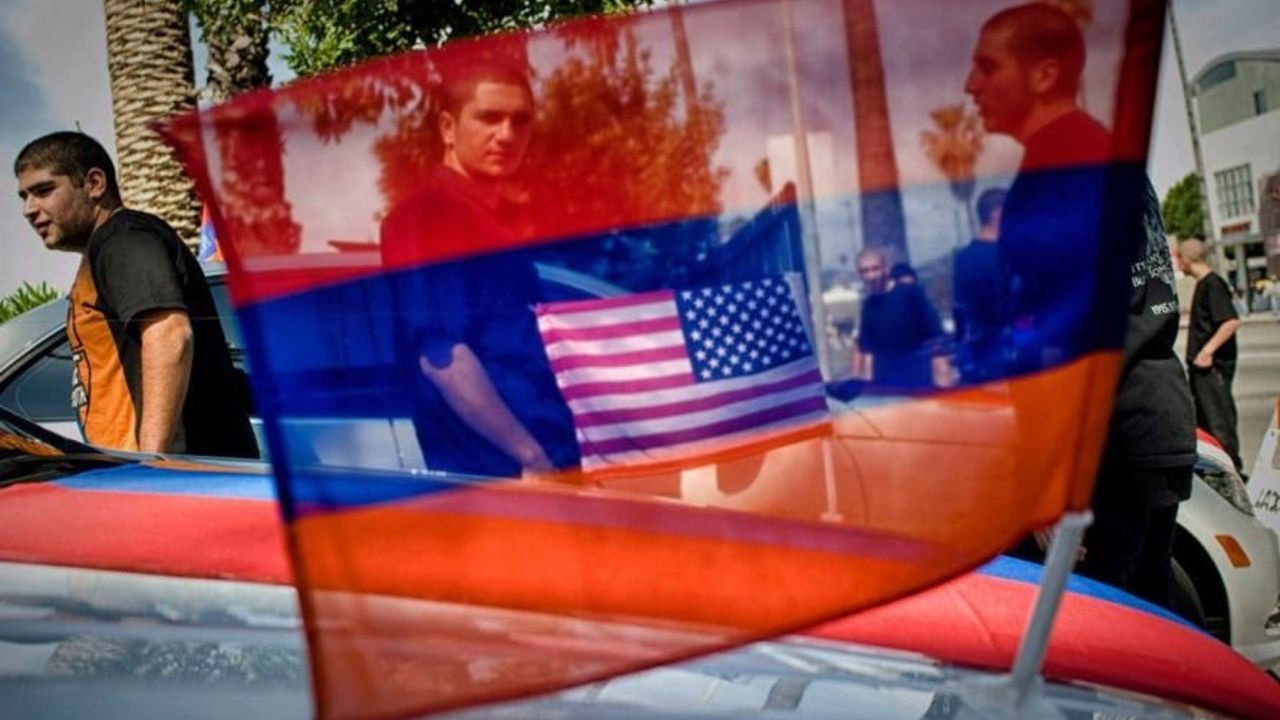Politicizing history through distortion: So-called Armenian genocide allegations
April 24 once again underscores the ulterior motives of diaspora Armenians, who profit from the economic challenges faced by the Armenian people as they politicize and distort historical narratives

Dr. Dogacan Basaran Exclusive — We're now 201 days into Israel's attacks on Gaza, which started on Oct. 7, 2023. The world has been witnessing a genocide on live TV for this entire period. The Western World's reluctance to label the events in Gaza as genocide has prompted renewed discussion of the Armenian Genocide, framed within the context of addressing the events of 1915.
Before delving into the Armenian allegations, it's worth mentioning how diaspora groups have commercialized and politicized the genocide claim. The most important reason for the world's silence on the genocide in Gaza is undoubtedly the pressure exerted on Western politicians by Jews who were exposed to the Holocaust through their diaspora activities in Western countries.
Norman Finkelstein, a Jewish-American academician whose family were Holocaust survivors, has critically analyzed the commercialization and politicization of the Holocaust in his book "The Holocaust Industry." Similarly, the Armenian diaspora has also faced similar dynamics regarding the Armenian genocide claim.
Diaspora industry
The discourse within the Armenian diaspora centers on the assertion that Armenians suffered genocide during the events of 1915. This narrative suggests that diaspora Armenians in countries like the U.S. and France are seeking to profit by commercializing these claims. The ongoing conflicts between Ankara and Yerevan, as well as Baku and Yerevan, are often kept alive to support the interests of the diaspora Armenians.
Diaspora Armenians often benefit economically from propagating the genocide claim, especially in countries like the U.S. and France, while simultaneously hindering Armenia's efforts to normalize relations with its neighboring countries. This dual dynamic suggests that while diaspora Armenians are prospering financially, Armenians are condemned to poverty due to isolation from the world.
Indeed, both the Armenian people and the leadership in Yerevan are aware of this situation. Therefore, after the Second Nagorno-Karabakh War, Armenian Prime Minister Nikol Pashinian, despite losing the war, won early elections with strong support from the Armenian people. His Civil Contract Party returned to power as a result.
As a matter of fact, Pashinian has demonstrated that he is not bound by the lies of 1915, both with the steps he has taken for the signing of a permanent peace treaty with Azerbaijan and the normalization process with Türkiye. Recent examples of this are Armenia's return of four occupied villages to Azerbaijan and the statements of Andranik Kocharian, chairperson of the Defense and Security Affairs Committee of the Armenian Parliament, stating that the so-called genocide allegations do not reflect reality.
What happened in 1915?
During the intense days of World War I in 1915, the Ottoman State was fighting enemies on various fronts. Simultaneously, separatist Armenians in Eastern Anatolia, in collaboration with the Russian Czars, rebelled and committed massacres against the people of the region.
The Ottoman State, facing wartime challenges and national security concerns, decided to relocate Armenians as a measure to safeguard its interests. Despite the difficult wartime conditions, the Ottoman State took maximum measures to ensure the safety of Armenians during this relocation process.
Certainly, during the relocation, there were certain gangs who reacted to the Armenian atrocities and attacked the migrating Armenians. However, labeling these events as genocide is a distortion of history. Genocide entails the systematic destruction of a nation, yet the Ottoman State's relocation decree didn't exclusively target Armenians but also included the migration of other non-Muslim populations.
Moreover, the Ottoman State prosecuted officials who were involved in the disruptions during the deportations in 1919-1920. Therefore, characterizing the issue as genocide is nothing but a distortion of history. The Armenian diaspora often politicizes the alleged genocide claims and gains financial benefits, particularly in Western countries like the U.S. and France.
In conclusion, the Ottoman State was backstabbed in World War I and decided to relocate Armenians in order to prevent uprisings. It did not hesitate to prosecute those responsible for the failures in the implementation of this decision. The so-called Armenian genocide allegations, on the other hand, are aimed at increasing the wealth of Armenians in different countries of the world while condemning Armenians to poverty. The current reality of the region necessitates normalization and peace, yet diaspora Armenians are once again attempting to disrupt regional peace, particularly on April 24.







